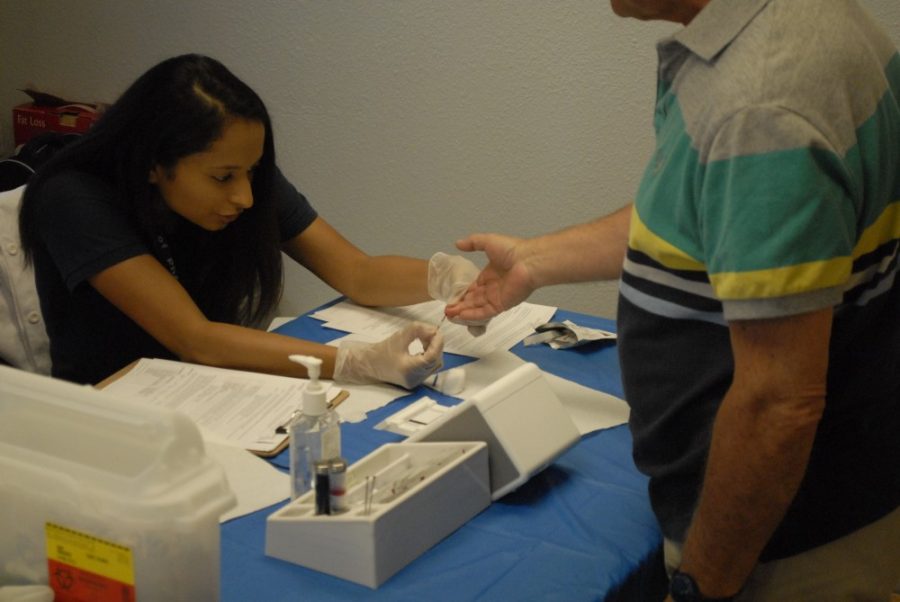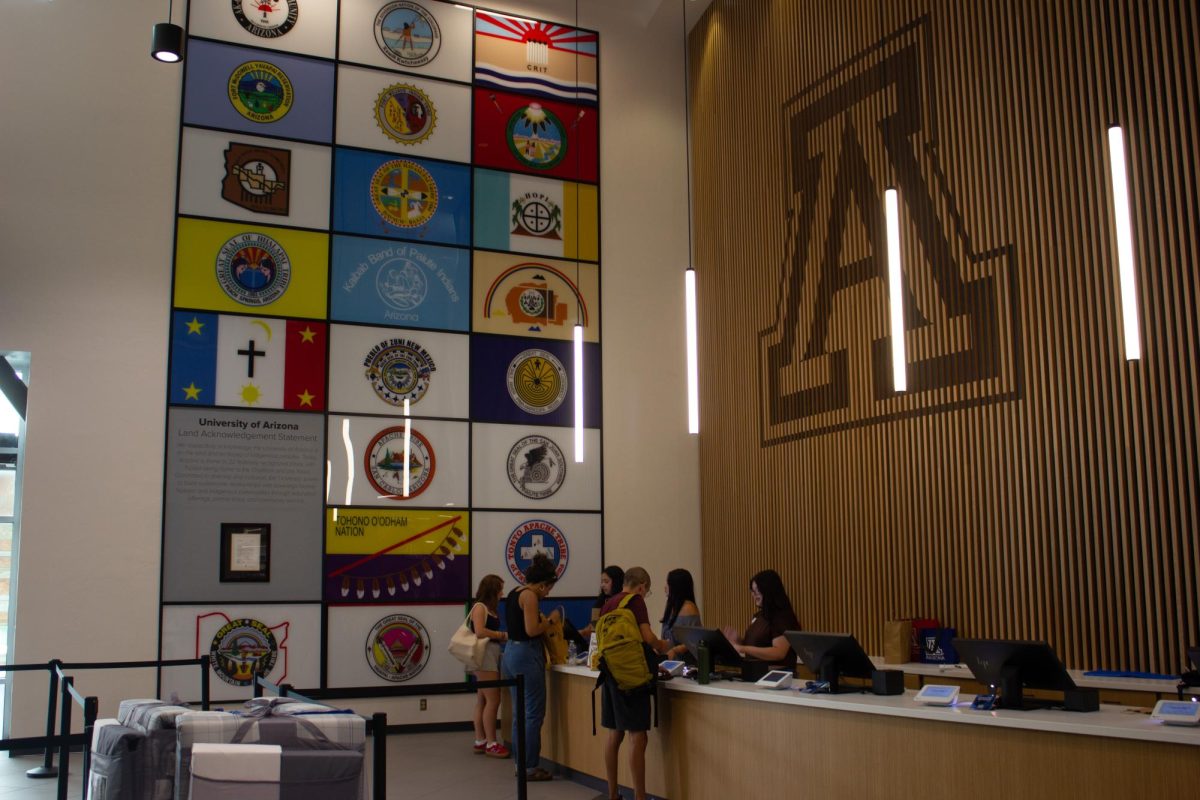UA graduate students reached out to the Tucson community on Saturday, providing free health screenings and information, while gaining real-world medical experience.
At the annual El Rio Neighborhood Center Health and Safety Fair, residents of Southwest Tucson could take advantage of a free health evaluation, which they otherwise may not have been able to afford. Such health screenings ranged from asthma and cholesterol, to hearing, vision and diabetes.
In return for volunteering, graduate students were able to apply lessons learned in the classroom to real-life situations.
“Applying what we learn in class is a big thing,” said Bradley Bingham, a pharmacy graduate student. “I really enjoy interacting with the patients … it’s one thing to learn something in class … but it’s another thing to actually be able to practice it and demonstrate it.”
Bingham spent his time at the fair evaluating patients for asthma. Using a small device known as a Peak Flow Meter, he was able to measure a patient’s peak expiratory flow rate. Each individual has a goal of how much volume of air they should expire, depending on their height and age, he said. If patients blew in the yellow or green range, they were OK, but if they blew in the red range, patients were written a referral.
“This isn’t a diagnosis, it’s just a reference for them [patients] to go talk to their physician about seeking possible medical attention,” Bingham said. “A lot of the patients, they’re coming here to figure out what’s wrong with them, or to see if they do
have any of these predispositions.”
Along with the College of Pharmacy, several students from the College of Speech, Language and Hearing Sciences also volunteered their services.
“Hearing loss … is kind of under-recognized in the community,” said Curtis Vanture, an audiology graduate student. “A lot of people have hearing loss but don’t realize it … so we feel that being out here is a great way to kind of spread awareness.”
In order to test for hearing loss, audiology students used portable audiometers, which allowed them to play a series of pitches into a patient’s ear and assess what pitches they were able to hear. If certain pitches were missed, it could be an indication that they may be missing different speech sounds.
“It’s not a thorough evaluation … but we’re able to get a good sense of if they have normal hearing versus if they have a hearing loss,” Vanture said. “The ability to get out into the community and test people and let them know what their hearing status is, I think is a great opportunity.”
James Dean, a senior lecturer and pediatric audiologist in the College of Speech, Language, and Hearing Sciences, said the most rewarding thing for him was to see students showing empathy and working well with patients.
“Already today we’ve had a very diverse population come through, and to see the students adapt to that makes me feel … like they’re going to be very confident, caring people when they graduate,” Dean said.
Also, since many patients of the fair were Spanish speakers, several translators were available to help students communicate.
Pharmacy graduate student and coordinator of the fair, Clarissa Sema said she thought the fair was a good way of giving back to the community and using the skills they’ve developed.
“A lot of members of the community don’t know what screenings we can do as students … so that’s always really important to offer that service, especially to community members who don’t necessarily have the ability to see a doctor on a regular basis.”









